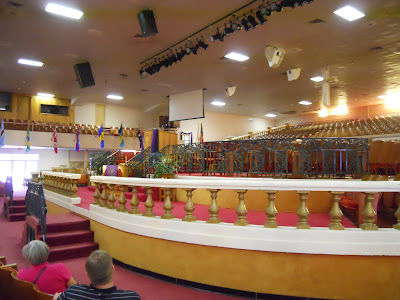 I received an emailed article from a colleague at work today that was very interesting. The article explained that recently the Cherokee Supreme Court (they are a sovereign people) ruled that only Cherokees of blood descent are allowed to be members of the tribe and thus benefit financially from the profits they earn from their casino businesses. That means that descendants of former Cherokee slaves who had long been considered official members of the tribe are now not.
I received an emailed article from a colleague at work today that was very interesting. The article explained that recently the Cherokee Supreme Court (they are a sovereign people) ruled that only Cherokees of blood descent are allowed to be members of the tribe and thus benefit financially from the profits they earn from their casino businesses. That means that descendants of former Cherokee slaves who had long been considered official members of the tribe are now not.Not too many people know that the Cherokees, among many other southern Indian tribes such as the Creeks, Chickasaws and Choctaws held African American slaves. Many of these tribes had become so-called "civilized" to white ways in the early 19th century and that included agricultural slaveholding. When most of these Indians were removed to west of the Mississippi River in the 1830s, they took their slaves with them.
I really want to know more about this topic and there appears to be several good books out there about it. One is pictured here: Ties that Bind: The Story of and Afro-Cherokee Family in Slavery and Freedom, by Tiya Miles. Others include African Cherokees in Indian Territory: From Chattel to Citizens, by Celia E. Naylor, and The House on Diamond Hill: A Cherokee Plantation Story, by also by Tiya Miles.
To me the relationship between these two groups is fascinating. Here are two of the most oppressed peoples in American history and yet one group was willing to hold the other as slave. I guess it goes to show something that should not surprise any of us; that is that sometimes people are motivated more by economics than by common circumstances.
Here is a link to the article:
























